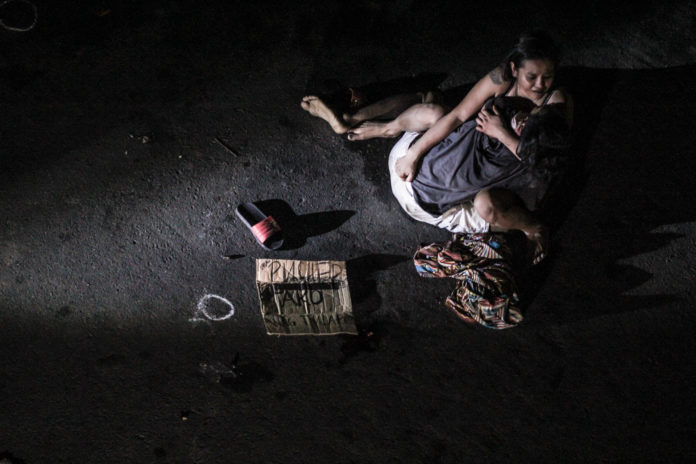By Rommel F. Lopez

(Photo by Basilio Sepe)
The Philippines remains one of the most dangerous places in the world for civilians.
This is according to the Armed Conflict Location & Event Data Project (ACLED), which ranked the Philippines the fourth most dangerous place in the world. Since the start of the year, there have been nearly “450 direct attacks targeting civilians resulting in nearly 490 reported fatalities,” according to a report by ACLED.
India is the most dangerous country in the world for civilians, with 1,385 events reported.
ACLED, which claims to be “the highest quality, most widely used, real-time data and analysis source on political violence and protest around the world,” said in its report that Central Luzon and the Calabarzon regions recorded the highest number of reported fatalities, accounting for 23 percent and 22 percent of the total, respectively. Approximately 10 percent of reported fatalities were recorded in Metro Manila.
Law enforcement deaths, or those caused by police operations, accounted for nearly 60 percent of all civilian targeting events, followed by 27 percent caused by unidentified or anonymous armed groups and 8 percent by anti-drug “vigilantes.” The ACLED suspects that vigilante groups might be in fact “linked to the state.”
“More than half of all political violence in the Philippines each year since 2016 has consisted of violence against civilians, corresponding to when President Duterte assumed office,” the ACLED said.
Eighteen percent of reported deaths (some 90 recorded killings) were those of former and current government officials perpetrated by unidentified or anonymous armed groups that were often suspected to be linked to their political rivals. The number of attacks spiked before the midterm elections in May of this year.
Civilian attacks are not confined to drug suspects and government officials, the report said.
“Members of political parties, leftist organizations, land activists, farmers, lawyers, and judges have all faced targeted attacks in 2019,” the report said.
“President Rodrigo Duterte’s ‘War on Drugs’ has driven this violence,” it added.
Amnesty International had also accused Duterte of carrying out a “large-scale murdering enterprise.”
An Amnesty report detailed the systematic killing of the urban poor, which it described as reaching a scale that “amounts to crimes against humanity” that the United Nations should investigate.
It claimed that local police pressured local officials to come up with names to put on their “drugs watch list,” without any evidence presented or verification of the allegations.
Nicholas Bequelin, Amnesty International’s regional director for east and southeast Asia, said “it is time for the United Nations, starting with its Human Rights Council, to act decisively to hold President Duterte and his government accountable.”
He described Duterte’s campaign against illegal drugs as “nothing but a large-scale murdering enterprise for which the poor continue to pay the highest price.”
Just recently, Iceland submitted a draft resolution to the UN Human Rights Commission calling on High Commissioner Michelle Bachelet to produce a “comprehensive written report” on the human rights situation in the Philippines. Twenty-seven UN member states co-sponsored the draft resolution.
The draft resolution is also asking the Philippines to cooperate with the UNHRC “by facilitating country visits” and to prevent or refrain “from all acts of intimidation or retaliation.”
Presidential spokesman Salvador Panelo said any UN inquiry into the drug war would be an “interference with our sovereignty.”
Reacting to the Iceland resolution, Foreign Affairs secretary Teddy Locsin, Jr. wrote on Twitter: “If the Iceland resolution wins that means bonuses for everyone who worked for it — from the drug cartels.”
Vice President Leni Robredo called the resolution “embarrassing” as other countries seemed more concerned with the rising number of deaths than Filipino officials.
During her weekly radio program, “BISErbisyo Leni” last Sunday, Robredo said “human nature” dictates that when a person is accused “you prove that the accusation is not true.”
“In this case, we are being accused. Instead of us showing that the accusation is not true, we are saying: ‘Don’t meddle with us,’” she said.
Apart from the UNHCR, the International Criminal Court (ICC) is also conducting its own preliminary inquiry into Duterte’s drug war. The investigation covers Duterte’s term when he was Davao City mayor in 1988 up to the present, and whether the deaths related to the campaign against illegal drugs constituted crimes against humanity. Enraged by the ICC investigation, Duterte withdrew the Philippines from the Rome Statute that placed the country under the ICC. The ICC has decided to continue its investigation, however.
The ICC defines crimes against humanity as “serious violations committed as part of a large-scale attack against any civilian population.”